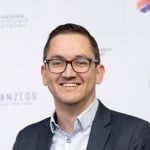On average, women in Australia and New Zealand have high levels of health throughout their life. However, the same cannot be said for our Pacific neighbours. According to the World Health Organization (WHO) at least half of the world’s people are currently unable to obtain essential health services.
RANZCOG’s vision in global health is to contribute to regional efforts to empower the reproductive health workforce to meet the challenges of providing quality care in low-resource and isolated settings through collaboration, partnerships and advocacy. RANZCOG’s commitment includes:
- Educational support
- Provision of resources
- Networking support
- Facilitation of training
- Research
- Continuing professional development (for O&Gs, midwives and other reproductive health workers)
In this series, we will be highlighting the crucial and inspiring work some of our Fellows have undertaken as part of our Global Health Initiative.
Jared, can you tell us more about your experience with Médecins Sans Frontières (MSF)?
I remember being petrified at the airport.
Getting involved in Global Health initiatives was something I always wanted to do from medical school days. I had heard a lot about MSF and when I came across their stand while in Canada at FIGO, I signed up. When I arrived in Nigeria, however, it was completely different to what I expected. I thought: What on earth have I got myself into?
What was the biggest challenge you faced?
Trying to get over the enormity of the issues there and then trying to start somewhere! My first day was overwhelming. I thought there was a small chance I may see a woman die in childbirth; however, I ended up seeing sixteen. The first death I saw was within hours of arriving. You have to learn to focus on helping individual patients and measuring your impact case by case instead of focusing on the global scale to start with, otherwise it can become disheartening and overwhelming.
What did you learn?
I worked in one of MSF’s longstanding projects with the Nigerian government. The project involved 10–12 Nigerian junior doctors, two expat O&Gs, one expat anaesthetist and several midwives providing obstetric and fistula treatment in the General Hospital. MSF provides day-to-day patient care while training local doctors so that the project can hopefully be handed back to the Nigerian people and the service becomes self-reliant.
There’s so much that I learned from the Nigerian doctors. They’re so used to seeing things we’re not. I learned so much about malaria, HIV, eclampsia…some of their surgical skills are incredible! I got much more out of it than I expected.
What were the necessary steps you took to secure a placement with MSF?
When you’re in an unsupervised position with MSF you need to be a consultant. To apply, I filled out an application form with my skills list and resume. Then they called me for a two-to-three-hour interview in Sydney, where they asked me what I’d like to get out of my ‘mission’, explained what they can provide, and assessed whether I was up to the challenge. After the interview and being accepted, I attended a week-long training course (in Sydney as well). All in all, the process took about a year for me.
What advice would you give medical colleagues wishing to take part in global health initiatives in the future?
Practice and learn before you go. Take courses and research information about diseases and conditions that you will see that are not in Australia. But do it. You will give a lot but also get so much out of it.
Thank you, Jared.
Working with others, RANZCOG members can offer education, clinical skills, research mentorship, and financial support to improve women’s and family health across the globe. Interested in getting involved? Review our current pathways here.


